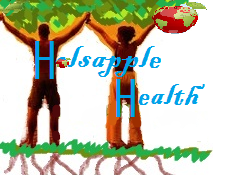|
DIRTY DOZEN Buy These Organic |
CLEAN |
|
|
EWG’s List of the Dirty Dozen Warrants Being Listed
Why Should You Care About Pesticides?
The growing consensus among scientists is that small doses of pesticides and other chemicals can cause lasting damage to human health, especially during fetal development and early childhood. Scientists now know enough about the long-term consequences of ingesting these powerful chemicals to advise that we minimize our consumption of pesticides.
What’s the Difference?
EWG research has found that people who eat five fruits andvegetables a day from the Dirty Dozen™ list consume an average of 10 pesticides a day. Those who eat from the 15 least contaminated conventionally-grown fruits and vegetables ingest fewer than 2pesticides daily. The Guide helps consumers make informed choices to lower their dietary pesticide load.
Will Washing and Peeling Help?
The data used to create these lists is based on produce tested as it is typically eaten (meaning washed, rinsed or peeled, depending on the type of
produce). Rinsing reduces but does not eliminate pesticides. Peeling helps, but valuable nutrients often go down the drain with the skin. The best approach: eat a varied diet, rinse all produce and buy organic when possible.
pesticides.
Peeling helps, but valuable nutrients often go down the drain with the skin. The best approach: eat a varied diet, rinse all produce and buy organic when possible.
WISE WORDS FROM:
9 Scariest Food Facts
Fruits and vegetables are losing their nutrients.
According to the USDA, the fruits and vegetables we eat today may contain significantly fewer nutrients than those our grandparents ate. Researchers looked at 43 produce items and discovered drops in protein (6 percent), calcium (16 percent), iron (15 percent), riboflavin (38 percent), and vitamin C (20 percent). The only way to counter this trend: Eat more of them.
Conventional supermarket peaches can be coated with as many as nine different pesticides.
Because peaches are prone to bruising, blemishing, and insect takeover, they’re routinely soaked in chemicals in the weeks before being shipped off to the supermarket. That’s why the Environmental Working Group rates peaches among the dirtiest conventional fruits in America. Also on that list: apples, celery, strawberries, and spinach. As a general rule, unless the produce has a thick, impermeable skin, assume it’s soaked in pesticides. Now wash it with water and mild soap before you eat it.
FOR A COMPLETE LIST OF ALL 9 VISIT : http://linkd.in/oc46Ry
